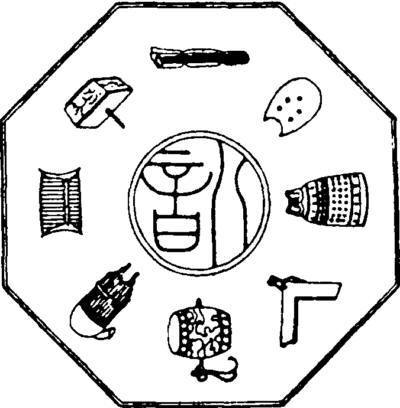Chapter 20 The third ritual
In ancient society, music was not only one of the ways for people to entertain, but also an important way for people to cultivate their minds and morals.Du You, a famous historian in the Tang Dynasty, once had an incisive discussion on "music": "The sound of a husband is born in the heart. If the heart is sad, the sound will be sad, and the heart will be comfortable. ""Singing songs are not enough, so dance with hands, dance with feet, move their faces, resemble things, and call it joy. The joy of the sages can be good for people. Therefore, the ancients, the emperors, princes, Qing and high officials do not enjoy music for no reason, and scholars do not go to the qin and se for no reason, so as to calm their hearts and smooth their aspirations, then the harmony will not dissipate, and the evil spirit will not interfere." ("Tong Dian Le Yi") Du You's words, first of all It discusses the relationship between "sound" (melody) and "heart" (psychology, emotion). When the mood is sad, the sound is sad, and when it is comfortable and happy, the sound is harmonious.Conversely, the sadness and harmony of the rhythm will also affect people's feelings and emotions.Later, he discussed the role of "music".When singing with sound is not enough to express one's feelings, one has to dance with hands and feet, and at the same time, it must have expressions to match the feelings to be expressed. This can be called "music".The reason why the sages use "joy" is because it can make human nature good.Therefore, the emperor and the scholars all regard learning music as a gift, using it to calm their temperament and express their aspirations. Because "music" has such an important role, the ancients matched it with rituals to add to the atmosphere of ritual activities and make people feel "music" and act according to rituals.Confucius once lamented that the current situation at that time was "the collapse of rites and the destruction of music" because of the great changes in society and various classes in the Spring and Autumn Period, which also shows the relationship between rituals and music.
The ruler's understanding of the interaction and relationship between ritual and music is more out of the need for governance.There is such a passage in "Book of Rites · Music Book": "Music is the same, and ritual is different. The same is blind date, and the difference is respect. The victory of music leads to flow, and the victory of courtesy leads to separation. It is a matter of music. If etiquette and righteousness are established, the noble and the humble will be equal; if the music and culture are the same, the upper and lower will be in harmony." It means that the function of music is to make people feel the same, and the function of etiquette is to distinguish the noble from the humble.The harmony of people's hearts can make people close to each other; there is a distinction between high and low, and people can respect each other.However, too much emphasis on music will often make people indulge and forget to return; too much attention to etiquette will make people alienated from each other and lack a sense of intimacy.Therefore, by correctly handling the relationship between etiquette and happiness, people's politeness can be maintained.If the correct etiquette is established, there will be a clear boundary between the honorable and the humble; if there is harmonious music, there will be a common feeling between the upper and lower ranks, and the hearts of the people will be united.This passage points out that the purpose of using music for etiquette is actually to use music as a supplement to ritual to make up for the limitations of ritual.

Figure 9 Octave diagram
It is a feature of the ancient etiquette system to combine music with ritual, which also endows music with an extremely important position and role.Zhou Li once stipulated that the six rhythms, six Lu, five tones, eight tones, six dances, and Dahele should be used to sacrifice ghosts and gods, reconcile the country, unify the people, and entertain guests.For this reason, playing music, waka, and dancing complement each other when holding ritual activities.When the Zhou Dynasty offered sacrifices to heaven and earth, they played the music of "Yellow Bell", the song of "Da Lu", and the dance of "Cloud Gate". "Salty Pond".It can be said that if there is a ceremony, there must be a joy, and this system has also been followed by successive dynasties.For example, during the court meeting, the emperor enters the court and plays music; when the officials meet, they play music, waka, and dance; when they leave the court, they play music.During the banquet, the emperor first gave wine and played music, and during the banquet, the actors sang and danced.Since almost all major activities of the imperial court were inseparable from music, singing and dancing, a whole set of court music and dance was formed.The imperial court had Si Yue, Jiao Fang, Yue Zheng and other officials or government offices in charge of bands and performers, who were specially in charge of music and dance.People often use "singing and dancing to promote peace" to praise the peace and prosperity of the world, and it is precisely the governance of the country with ritual and music.

Figure 9 Octave diagram
